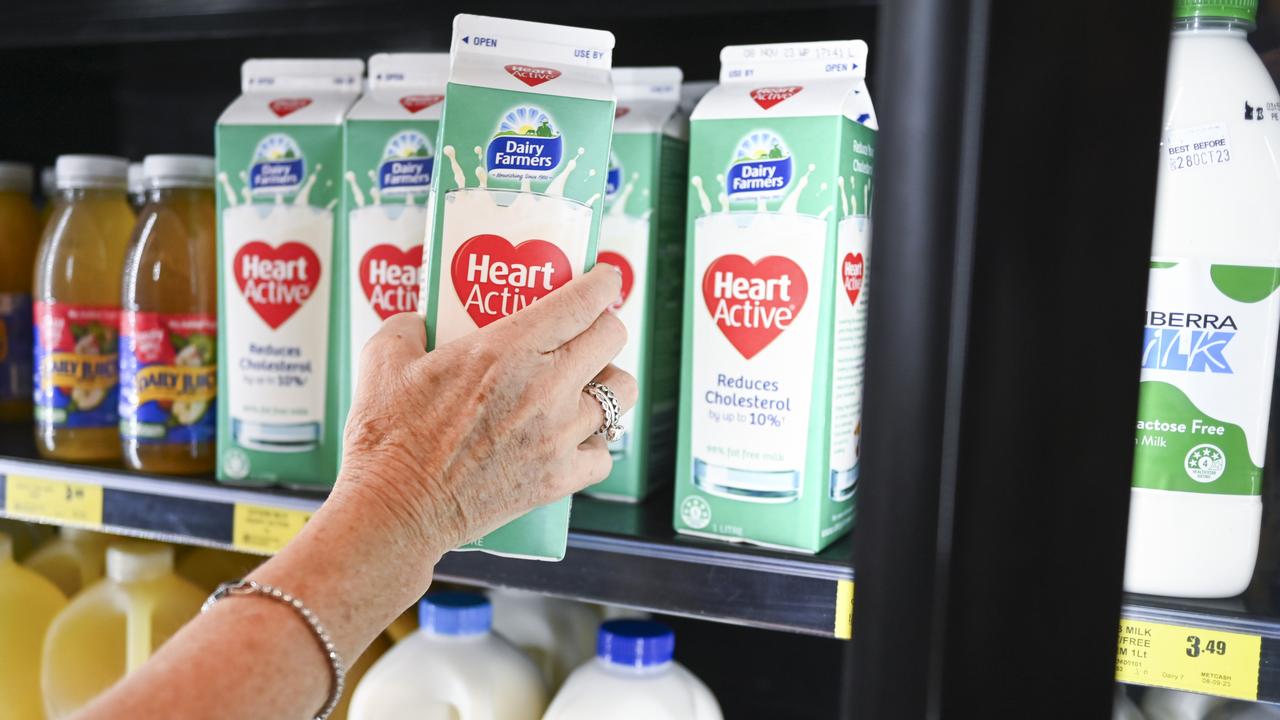Australians have been warned the cost of milk is set to skyrocket, with the industry pushed to the brink by rising costs and recent industrial action.
Earlier this week, milk tank drivers and thousands of dairy workers walked off the job across Victoria in what the United Workers Union (UWU) called the “biggest dairy strike in living memory”.
Workers are striking against Saputo, Fonterra, Lactalis and Peters ice cream who they say are refusing to share “booming” profits, and are demanding higher pay and better working conditions.
On Friday the Australian Dairy Producers Federation (ADPF) president John Williams told Today that milk prices would likely rise if an agreement was not reached between workers and milk processors.
“(The unions) have targeted multiple companies across multiple factories and it is no coincidence it comes at a time when we are in our peak production period for the season,” he said.
Mr Williams said the perfect storm for rising prices had been sparked by this week’s industrial action, record-low milk production on farms, increased costs and overseas competition.
“We have surging imports of cheaper products and this is putting real pressure on homegrown Aussie made products at the moment,” he said.
Emotional UWU members took to social media during the strikes to share their message, with more than 1400 taking part in the industrial action across the state.
One member said in a video posted to Facebook that some dairy workers still rely on Centrelink payments to make ends meet despite working five days a week.
The Transport Workers Union (TWU), who was supporting the milk tank drivers’ strike against dairy giant Saputo, said employers were failing to address key job security concerns.
“Negotiations have been drawn out and have gone stale, Saputo has elected not to stand by their own self-declared ethics and are now squeezing our hardworking drivers in the midst of a cost-of-living crisis,” TWU Branch Secretary Mike McNess said.
UWU national secretary Tim Kennedy warned that UWU members had already voted for 24-hour rolling stoppages should the dispute continue.
“From what we have seen from 1400 dairy workers walking off the job on this strike, they will not take it lying down if the bosses try to short-change them,” he said.
“There is only so much we can do in regards to taking on that cost pressure and (not) passing it on to our consumers,” Mr Williams said.
“Dairy manufacturers have worn a lot of the extra costs and it is very difficult to try to offset that…
“That is the last thing that dairy manufacturers want to do.”
This follows reports on Thursday that one Melbourne grocer, namely the IGA in Murrumbeena, was forced to impose purchase limits on milk due to short supply amid the strikes.
Lactalis told NCA NewsWire that any purchase limits imposed by retail partners would be imposed, at their discretion, due to surges in demand rather than disruption to supply.
“There has not been a disruption to milk supply and we will continue to provide products based on current demand levels,” a spokesperson said.
“It was extremely disappointing that the Transport Workers Union (TWU) and United Workers Union (UWU) chose to strike during the peak milk production period in Victoria, causing concern among the public in relation to potential shortages of dairy products on supermarket shelves,” ADPF executive director Janine Waller told NCA NewsWire.
“Even before this strike action, dairy processors are contending with 30-year lows in milk volumes of 8 billion litres, increased and persistent input costs, and a 30 per cent surge in cheap imports as witnessed by cheaper imported dairy butter and cheese products on our supermarket shelves – impacting their ability to remain cost competitive.”
“But the resilience and commitment of ADPF members to continue converting dairy farmers’ milk into the delicious products we enjoy every day at every meal – such as fresh milk, yogurt, cheese – has yet again been demonstrated this week. (This is) ensuring continuity of supply to the public despite industrial action.”
“So, there is no need to worry about buying your favourite Australian dairy products this weekend.
Ms Waller urged Aussie shoppers to help the dairy sector by choosing Australian, rather than imported products.
